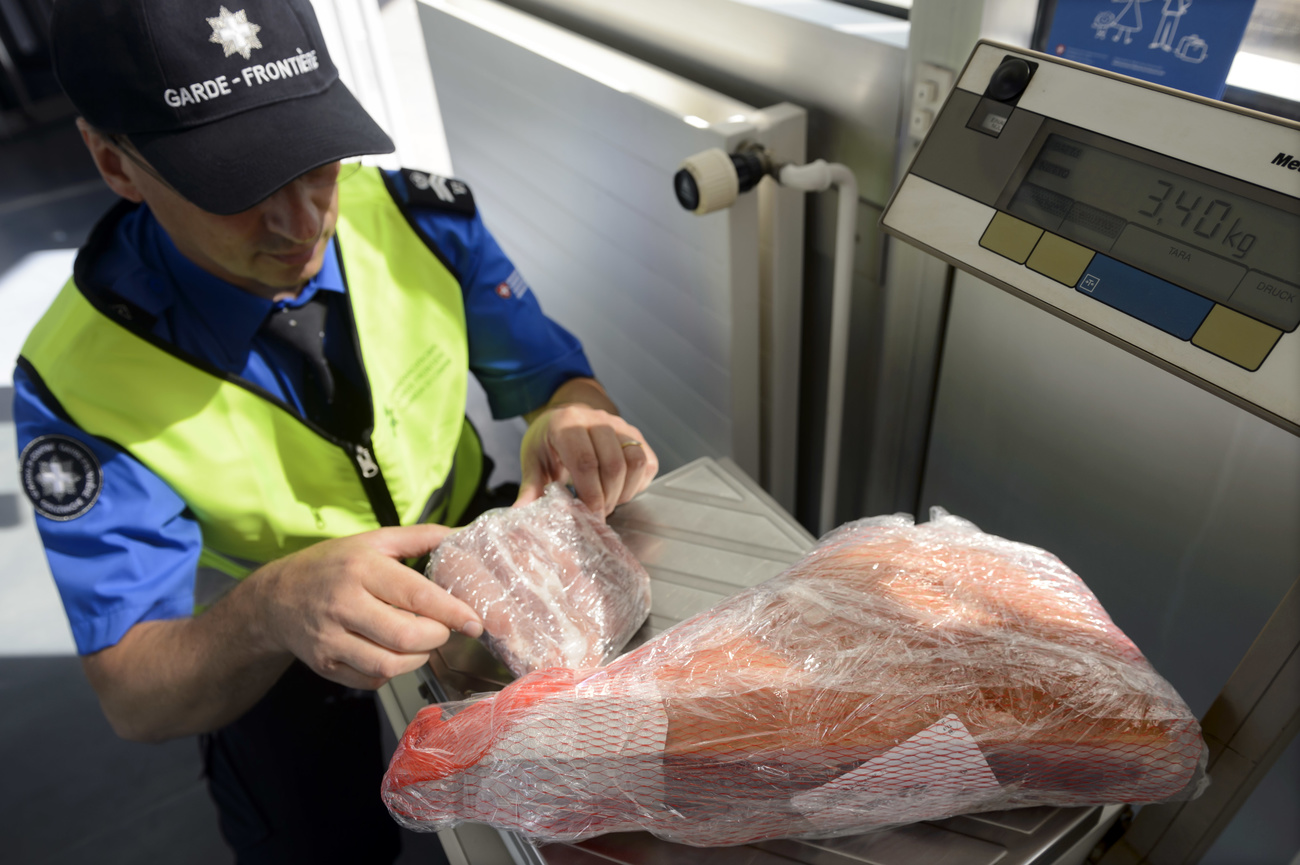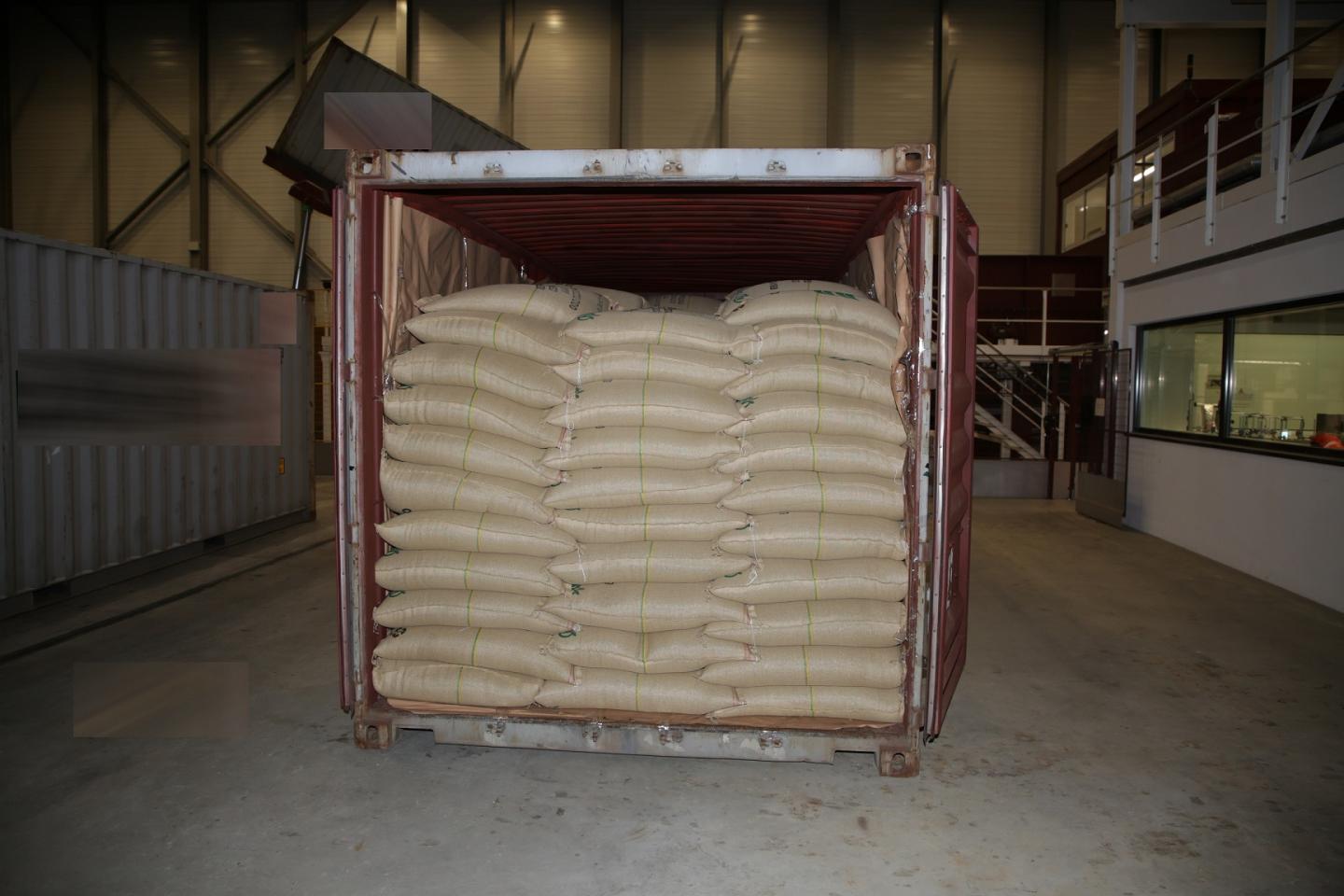
Swiss customs seized fewer drugs and more meat in 2023

Customs officers seized fewer drugs and more doping products in 2023, while meat smuggling doubled in a year, authorities said on Tuesday.
The Federal Office of Customs and Border Security (FOCBS) recorded a total of 60.7 million customs declarations in commercial traffic last year, it said. This marks a 10% increase compared with 2022, mainly due to a 20% rise in imports linked to online trade.
The amount of counterfeit goods seized remained stable in both commercial and tourist traffic, the customs authority said.
Drop in drugs
Drug smuggling meanwhile fell sharply, with the FOCBS seizing 243kg of marijuana, compared with 476kg the previous year; the quantity of heroin seized fell from 11kg to 7kg.
Cocaine seized was at a similar level to previous years, at 110kg. However, this doesn’t include the discovery in 2022 of half a tonne at the Nespresso factory in Romont, which led to a statistical “aberration” of 568kg.

More
Swiss detectives follow trail of cocaine seized at Nespresso factory
Swiss customs also intercepted 1,422 parcels containing doping products, 409 more than in 2022. They also discovered 6,659 consignments of illegal medicines, slightly more than the previous year, most of which (43%) no longer came from Eastern Europe but from India.
Meat smuggling also rose sharply, and was a major focus of the FOCBS’s criminal prosecutions in 2023. The customs authorities identified 263 tonnes of illegally imported meat, more than double the figure for 2022.
Lower tax revenues
The FOCBS has forecast a tax intake of CHF23.6 billion ($26.83 billion) in 2023, compared with CHF24.3 billion in 2022, which corresponds to around one-third of the total tax intake of Swiss federal authorities.
The customs office attributes the year-on-year decline to a change in consumer habits.
For example, new standards introduced by the CO2 Act have encouraged consumers to replace oil and gas heating systems with heat pumps. This has led to a decline in revenue from mineral oil tax and CO2 taxes.

More
Swiss approve net-zero climate law
A fall in revenue from tobacco tax is meanwhile due to an increase in purchases of cigarettes abroad or in duty-free shops. Added to this is the fall in the number of smokers and a growing proportion of less-taxed alternatives to tobacco.
Adapted from German by DeepL/dos
This news story has been written and carefully fact-checked by an external editorial team. At SWI swissinfo.ch we select the most relevant news for an international audience and use automatic translation tools such as DeepL to translate it into English. Providing you with automatically translated news gives us the time to write more in-depth articles.
If you want to know more about how we work, have a look here, and if you have feedback on this news story please write to english@swissinfo.ch.

In compliance with the JTI standards
More: SWI swissinfo.ch certified by the Journalism Trust Initiative


























You can find an overview of ongoing debates with our journalists here . Please join us!
If you want to start a conversation about a topic raised in this article or want to report factual errors, email us at english@swissinfo.ch.